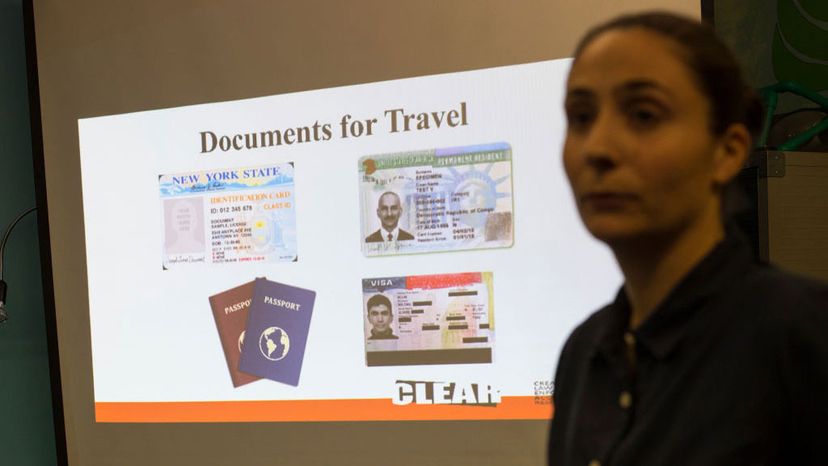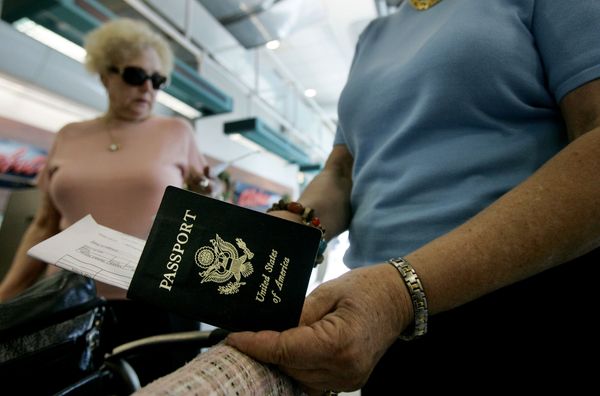
When Dana Zzyym was born in 1958, the hospital left the "sex" entry on the birth certificate blank. That's because Dana, like an estimated 0.05 to 1.7 percent of the world's population, was born intersex. Their physical traits at birth weren't clearly male or female, but something else (Dana uses the pronouns "they," "them" and "their"). Dana was raised as a boy, but only after painful, unnecessary, and ultimately unsuccessful surgeries to "correct" their genitalia.
Dana served six years in the U.S. Navy as a man, after which they decided to identify as intersex and take up the cause of intersex activism to protect other children from traumatic medical procedures. Planning to attend an intersex rights conference in Mexico City, Dana applied for a passport. Since the only two gender options on the application were "M" or "F," Dana wrote in the word "intersex" and provided a separate letter explaining that they were neither male or female. Dana's passport application was denied.
Advertisement
In 2015, after submitting two more passport applications including letters from VA physicians certifying that they were not male or female — plus a copy of the original blank birth certificate — Dana decided to sue the U.S. State Department. Dana's lawyer is Paul Castillo of Lambda Legal, an advocacy group for LGBT rights.
"It's critically important for gender diverse individuals to have a gender marker that reflects who they are," says Castillo, who is fighting for Dana's right to have an "X" on their passport for "unspecified," similar to passports already issued by several countries, including Australia, Germany and most recently Canada. "Having the wrong gender marker can cause problems. An inaccurate marker on their ID exposes them to being outed as a trans person, which increases the already grave risk that they have to discrimination and violence."
Dana's lawsuit is part of a larger movement to revamp government documents to more accurately reflect modern notions of sex and gender. Traditionally, sex and gender were lumped together, but we now understand sex to be a complex combination of factors, including genetics, outward physical characteristics, hormones and perhaps most importantly, gender identity. Gender identity is the innate sense of being male or female, or in the case of intersex and non-binary individuals, neither.
Australia authorized the first "X" gender category for passports all the way back in 2003, but change in the U.S. has been slower. Transexual Americans are allowed to change the "M" or "F" gender marker on their passports, birth certificates and driver's licenses (in most states) with a physician's note confirming their transition. And Washington D.C. and Oregon have passed legislation creating an "X" gender marker for driver's licenses and state IDs. But the State Department is still refusing to add "X" to passports.
Castillo says that the State Department's main objection to adding an "X" category is that it's going to cost money.
"Cost has never been a sufficient justification for discriminating against a person, particularly when it infringes on their constitutional rights to equal protection and liberty," says Castillo, who also contends that forcing an intersex person to choose between "M" and "F" on a passport application is asking them to lie on a federal form.
Some trans and intersex activists believe that Dana's case doesn't go far enough. Groups like the Gender-Free I.D. Coalition in Canada think that it's time to scrub all mentions of gender from ID documents. Gender, they argue, isn't a useful or even accurate way of identifying someone, unless you're willing to check if their genitalia match their driver's license.
"You wouldn't be entitled to ask somebody's race, sexual orientation or religion — and gender is exactly the same," said barbara findley (who spells her name all lowercase), a lawyer with the Gender-Free I.D. Coalition, in the Toronto Star. Castillo of Lambda Legal agrees.
"Most of these federal and state-issued IDs have other mechanisms for verifying identity: a photograph, date of birth, height, an address," says Castillo. "Gender traditionally has been determined solely on the basis of what a physician sees in terms of external genitalia at birth, and it's not always accurate. It's their best guess."
Advertisement


